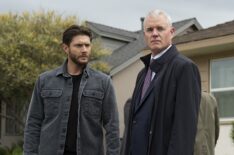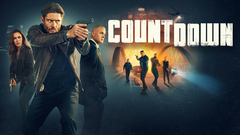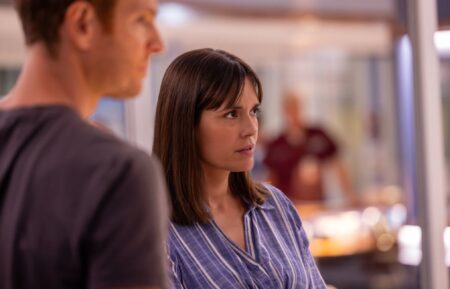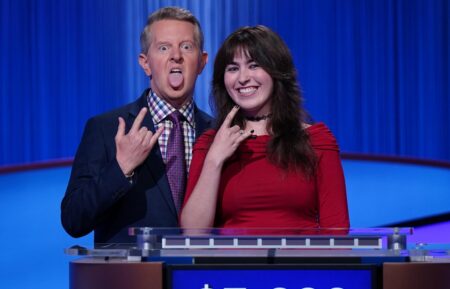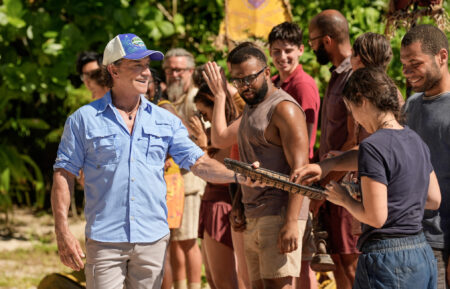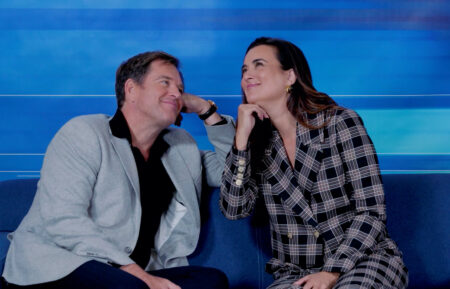‘Countdown’s Jonathan Togo Reacts to Drew’s Fate, Reveals What He Learned During the Read-Through
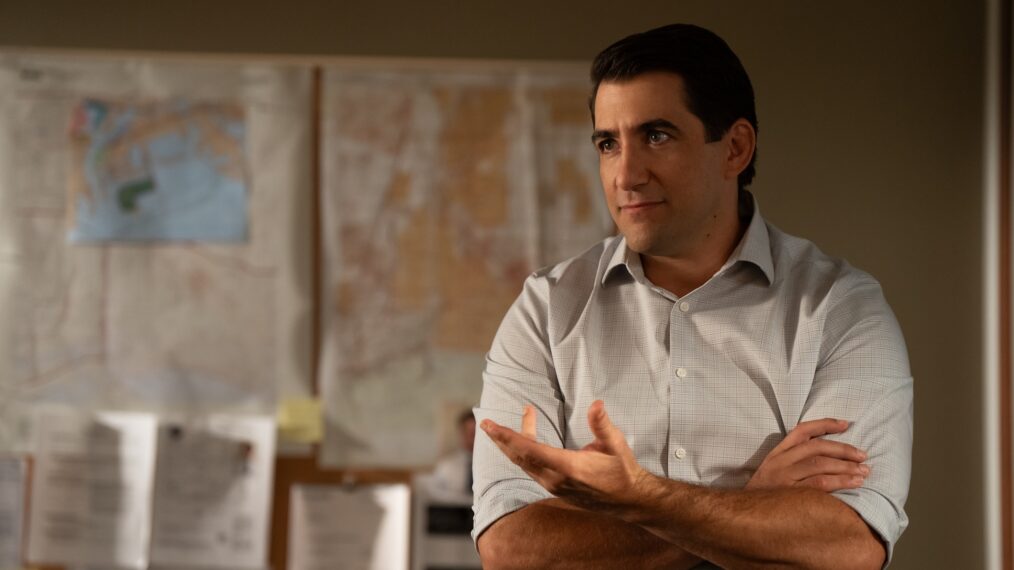
Spoiler Alert
[Warning: The below contains MAJOR spoilers for Countdown Season 1 Episode 4 “Bite ‘Em Down.”]
The task force suffers a major loss in the Wednesday, July 2, episode of Countdown.
Sadly, Damon Drew (Jonathan Togo) dies after being shot at the end of Episode 3. But the task force is going to remember him with a plaque hung in their office in his honor as they continue to hunt down the threat to Los Angeles. Below, Jonathan Togo reflects on Drew’s arc, compares him to CSI: Miami‘s Ryan Wolfe, and more.
How much of Drew’s arc had you known when you signed on?
Jonathan Togo: When Derek [Haas] approached me about the project, he told me that it was only going to be four episodes, and he explained that he wanted to have one of the members of the core team die pretty early on in the series so that he could communicate to the audience that the threats and danger that they were facing was real and to make it very immediate. I think that a lot of times on procedural cop shows on TV, the main characters face danger but never quite suffer the consequences of that. This was an opportunity for him to bring the sort of urgency and immediacy to the story that maybe we haven’t seen before in this genre.
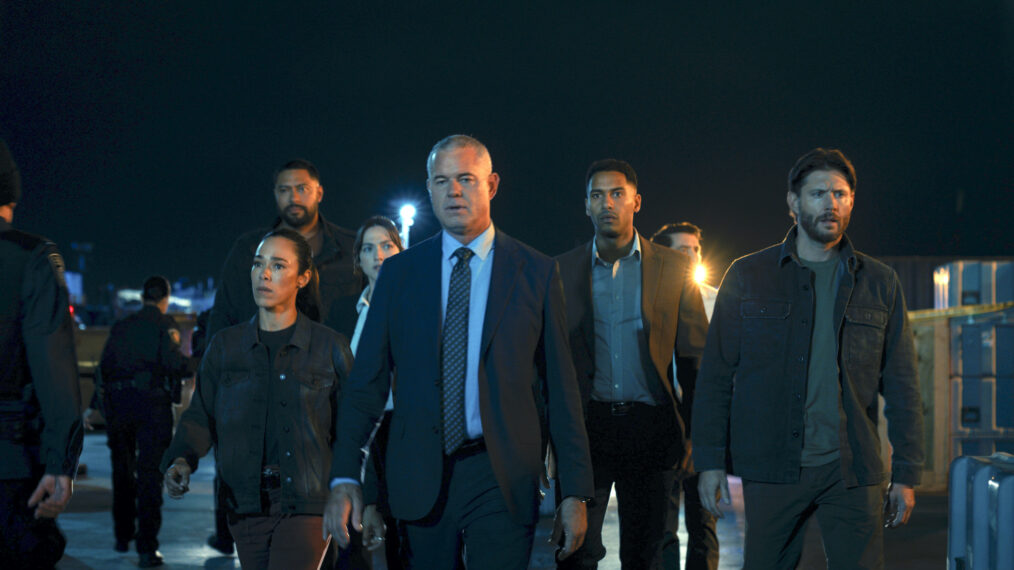
Prime Video
Had you also known the backstory with his son?
That was new information. The first time I was aware of that, and I was really excited when I read it because it’s a rich character note, was during the read-through.
It was so heartbreaking. Especially because the buildup to the reveal, of him coaching his little league…
I think I made a joke to Derek, hasn’t this guy been through enough? And then I further made the joke that when they go to tell Cora, who is Drew’s wife, it’s like they should come there and find her throwing herself off the roof. This poor woman has been through so much. But that’s the joy of working for Derek Haas, I did a procedural crime show for eight years, CSI: Miami, and there certainly were notes for Ryan Wolfe in there, he had his own sort of personal demons, but a lot of the time for the purpose of storytelling, the thrust of the story is about solving a crime and interspersed throughout those eight years, you get little clues about who the character was. But Derek starts character first when he writes a show. I remember reading it and then calling him and going, this is what we’ve been seeing for many years has been so popular on television, but it’s elevated. That’s what was so exciting about it.
What was your reaction to how Drew died specifically?
I think he died a noble death in pursuit of trying to save millions of people. So in that way, I’m grateful for the way it was written. I think that what’s interesting about the way Derek writes it, and what was interesting about how Drew died, was it’s a scene that we’ve seen so many times. It’s a cliche, the good guys showing up at the last second to save the hero, and rarely do we ever see the consequences of that. It upends the prevailing way we watch these shows. It just shows you that all these characters, despite their peccadillos and their own personal shortcomings at their core, are very selfless and are putting their lives on the line in service of this greater cause.
Drew and Blythe (Eric Dane) obviously had history. Is there any backstory you know about that we didn’t see on screen?
Everything that I was aware of was written. It was funny because the second Eric and I met — we have a very, very good friend in common, a screenwriter, John Gatins, who wrote Flight, I had met Eric once before — we instantly bonded. I think actors do that. They kind of meet each other and look around for the parts of their personal relationship that they can bring to the characters. But we had an amazing time. I certainly was aware of who Eric was, and it was super interesting to meet him for the first time because aside from meeting him once, I was so aware of his career, but we hit it off right away. We both come from this time of early ‘00s network television. So we actually had a lot in common, we had a lot of war stories to share, but it was an incredible experience.
As an actor, I’m not in control of what’s happening or what’s being said. If it were up to me, Drew would be there for 10 seasons, but that wasn’t the gig. So you go, “Well, what can I control about this experience,” or “What can I bring to it that Derek’s written so masterfully?” I think when it came to Drew and Blythe, Eric and I were able to tap in really quickly. We’re two guys that came from this era of network television and now we’re sitting on this beautiful historic lot working for this streaming channel that is owned by the biggest conglomerate in the world. It’s a totally different world from when we started. We connected super quickly on that.
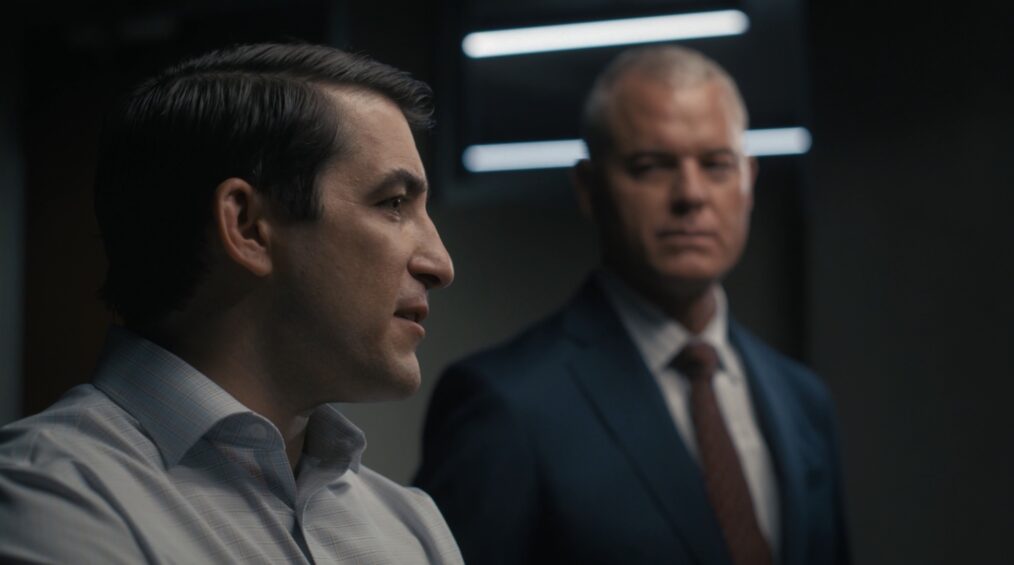
Prime Video
And I think when you see the scenes, you get a sense that these two human beings have a mutual love and respect and kind of a banter together, a comfort with one another. They are guys who’ve been around. I started my career in 2001, and it’s been 24 years of doing this, and Eric’s been around longer than I have but in a similar era, and we really got each other. That set was incredible. Jensen [Ackles], the same thing. The first time I met Jensen, we had a little cast only read-through, and he came up to me, and he said, “Hi, I’m Jensen.” And he was so nice and I was so taken back and I’ve been doing this and I don’t get starstruck, but it was surreal. We just had so many laughs, and Violett [Beane] and Uli [Latukefu] and Jessica [Camacho] and Elliot [Knight], it was fun.
Everyone kind of was really grateful to be there, because it had come after the strike and COVID, and we were a group of actors who’d all worked before and we were so thrilled to be there. And then we all kind of discovered each other were drama kids. There was singing and joking, and it was a really great group. We actually went and had dinner together right after Drew died. We went out to eat, and we got asked to quiet down by a table near us because we were so loud because we’re actors and we bonded really, really quickly. And when I watched it finally when it came out, I go, yeah, it’s there. That sort of group camaraderie is really there, and I hope people get that when they watch it, that this group of people do have this affinity for one another and are enjoying what they’re do. And everyone there is also super talented and super professional, not unlike the group itself.
So I think that dynamic plays out in a lot of ways between a lot of the interpersonal relationships. When you see two people on screen together, when you see Jessica and Jensen bantering, that’s a real thing. They really bantered. When you see Eric and I together, we’re like two old dogs really sitting on the porch chopping it up. It was an incredible experience. I felt really great about this group. And I think if you talk to any of them, they’ll all tell you the same thing. We had so much fun, we really believe in what we did, and we’re super proud of it.
If it had been anyone other than Blythe running this task force, do you think Drew would’ve said yes considering his commitment to coaching little league?
I think it would’ve only been Blythe. And I think that’s kind of like his superpower. He’s kind of like the, not to steal from another franchise, Nick Fury of this world. The first time you see Damon, he’s talking about, “Well, I said I’d coach my kid’s little league,” which I don’t know if that’s really just a ruse for, “It’s been too rough.” When Derek came to me about the role, he said, “I picture this guy, he’s kind of the Watson to Nathan Blythe’s Sherlock,” and I like that a lot. And it’s funny because Eric’s really tall and I’m not that tall. And he’s got so much gravitas in his deep voice and I don’t. But for me, I really clung to that.
Also, because I’ve been in this cop show world now since before the internet, playing, wearing a badge and a rubber gun, I kind of thought about it like, I think the best I can do, I think this is kind of Ryan Wolfe [from CSI: Miami] 20 years later. And I think that because the character in CSI: Miami was really kind of brash and naive and ambitious and impetuous. And if I had to revisit that character, 10, 15 years later, he’s mellowed out a lot. He’s got a family. I did that show when I was in my 20s, and I was ambitious and young and impetuous, and I mellowed out a lot. So it’s fun to get the chance to revisit the genre in that way and play a character who I think mirrors my life. As an actor, that’s what I bring to it. And again, back to the whole, Eric and I are from that same network TV era. It’s like, we’re two guys older now and contemplative about where we are now, and there was a real kinship and affinity for each other coming from that place.
There’s that heartbreaking exchange that Drew has with Blythe about what he would’ve done if he didn’t have his wife after they lost their son. Did Drew also need the work as a distraction almost from that loss and that also played into why he said yes to this task force?
Yeah, probably, right? This is a guy who’s grieving still. I don’t think the grieving would ever end for him. But he’s doing the only thing he knows how to do, which is put one foot in front of the other and keep going. There’s something about people who work in law enforcement — and I’ve had the privilege of working with a lot of them doing shows like this because they’re technical advisors — and you meet guys and it’s like it is their whole life. They get lost in that work. It’s also he’s being of service to his community and to his country, and maybe that’s the way he distracts himself from that pain. It’s not easy for these guys. They have to create an armor when they go to work because they’re battling the ultimate evil. They’re saving lives. It’s such serious business. So I don’t know that the ability to articulate their feelings comes as easily to them. But I think that was such a beautiful moment that Derek wrote, and I was super privileged and honored to get the opportunity to do that. When I read it, as an actor, you’re like, “This is such an incredible scene, an opportunity, I can’t wait to get on set and do this.”
Speaking of that armor and articulating feelings, Blythe had said if he needed to talk or just wanted to grab a beer and not talk after the case was over … Would Drew have opened up to him or chosen the get a beer and not talk option?
That’s a really great question. I think Drew exists as a sounding board for Nathan, and I think part of what he brings to the team is being that. He’s the guy they go to. He’s the chief of staff that the president goes to and confers with privately and they take their authority hats off and speak frankly and openly. I got the sense that because he functions as that person within the context of that group, it doesn’t come as easily for him to talk about himself or be vulnerable himself. His power comes from being somebody that the power consorts with. Would he have that beer? I think eventually. I think it’s always tricky when someone’s grieving like that. You don’t quite know what to — because you can’t fix it.
And I get the sense that Drew is really good at being the number two. This is Blythe assembling the best people for the most important job. So I don’t know that he has that part of his personality that functions within the group that way. I think that was a real turning point in their relationship. I think eventually, had he lived, they may have had that beer. The thing about Blythe is that he’s not showing his hand to anybody there ever. That’s his power. He’s kind of the wizard behind the screen, except with Drew, and I’m assuming their wives are friends, I’m assuming they have a life outside of the office together. Although it was interesting, there is another scene where we talk about the army and I ask him about it and I said to Derek, “Drew didn’t know this.” And he goes, “No, he didn’t know.” And so Blythe even has things he hasn’t shown Damon.
There was that moment where Drew got in the DA’s face. You talked about him being Ryan but mellowed out in a way. So where exactly did that come from? Was that, he’s going to do that to anyone who’s going after Blythe? Was that something else? Was that maybe his grief, almost like a way to let that out?
Yeah, look, I think also part of being the second in command is being the person who’s the pit bull. He’s the guy who gets things done and he does things that he intuits Blythe can’t do. So we’ve been dealing with the DA showing up a couple times now, and finally, it becomes a good cop, bad cop thing. They’re so mission-focused that anything that gets in their way, they’re going to remove, and it doesn’t matter where it’s coming from, but they especially know that this guy’s full of s**t. They spend all day, all night trying to accomplish the goal. They’re there when the sun’s coming up, they’re there when the sun’s going down. And at his core, Drew is a cop, and they’re cerebral and they’re strategic. But when they have to, they can push people out of the way, too, if that’s what the job entails.
I don’t know that that necessarily came from dealing with the grief, although I wish I had thought about that on the day. I wish when I did it, I had thought about that. I assumed that he has a well of anger and reserve, but no, I think it had more to do with — it is life and death to them. And he says that, this isn’t politics, this is what we breathe. This is it. This is our identity. And you coming in here to play politics just doesn’t fly with us.
But they’re pretty irreverent. I think Drew’s probably stuck in middle management a little bit. And I think Blythe is a little bit on the outside, too. And I think they are a group of misfits, every single person there. What they’re doing is really important. And I don’t know that — like I said, they’ve all got their own little sort of peccadillos to deal with that have put them where they are. But I think at their core, they’re super mission-focused, and it’s pretty selfless what they’re doing. And as a result of that, they’re going to push in any direction they have to.
Countdown, Wednesdays, Prime Video

